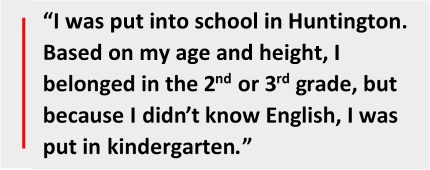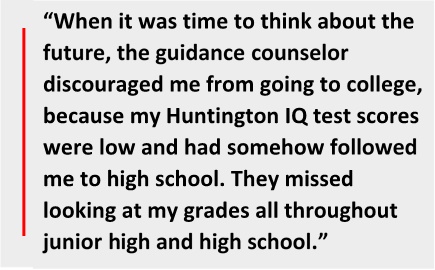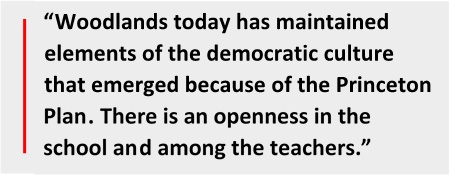The Association for Development Officers has announced that Victor Leviatin will be honored as their 2015 Board Member of the Year in recognition of his outstanding commitment to WISE Services. Over his 23 history with WISE, Vic has donated more than 20,000 hours of service to the organization. Vic has personally raised over one million dollars to support and sustain WISE Services. Vic Leviatin’s greatest gift is not simply his vision or his willingness to do the work, but to inspire others to do the same. His passion is contagious. Vic will be honored on at a breakfast on March 11 in Westchester. Details will be posted on the WISE website.
WISE Executive Director Amy Price and WISE Communications and Data Coordinator Danielle Brown spent a recent afternoon interviewing Vic.
Q: Tell us a little about your background and early schooling.
A: I was born in Dubno, Poland in 1939. Most of my family was killed by the Nazis. My father, mother, aunt, niece, and I were the only ones that survived; we were protected by non-Jewish Poles. The war really wiped out a family. When the war was over, we decided to go to the United States. My mother had siblings who immigrated there 20 years earlier. Because of the Polish quota, we had to wait three years before we could go to the U.S. During that time, we stayed in a displaced persons camp run by the American government in Germany. In 1949, I came to the U.S. at 9 years old.
We were helped by relatives and friends when we arrived. We lived in Huntington on Long Island for a couple of months and then moved to the Bronx. I was put into school in  Huntington. Based on my age and height, I belonged in the 2nd or 3rd grade, but because I didn’t know English, I was put in kindergarten. When we moved to the Bronx, I was finally placed in the proper grade and learned English. It wasn’t until I was in the 6th or 7th grade that I learned I was severely nearsighted and needed glasses. It was a miracle. The whole world opened up. Before that, I compensated for my poor eyesight by sitting in the front of the classroom and by asking the teacher to repeat information. I didn’t even know I was doing it. When I went to Taft High School in the Bronx, I played soccer and did well in school. When it was time to think about the future, the guidance counselor discouraged me from going to college, because my Huntington IQ test scores were low and had somehow followed me to high school. They missed looking at my grades all throughout junior high and high school.
Huntington. Based on my age and height, I belonged in the 2nd or 3rd grade, but because I didn’t know English, I was put in kindergarten. When we moved to the Bronx, I was finally placed in the proper grade and learned English. It wasn’t until I was in the 6th or 7th grade that I learned I was severely nearsighted and needed glasses. It was a miracle. The whole world opened up. Before that, I compensated for my poor eyesight by sitting in the front of the classroom and by asking the teacher to repeat information. I didn’t even know I was doing it. When I went to Taft High School in the Bronx, I played soccer and did well in school. When it was time to think about the future, the guidance counselor discouraged me from going to college, because my Huntington IQ test scores were low and had somehow followed me to high school. They missed looking at my grades all throughout junior high and high school.
I was accepted to Union College and was interested in pre-med. I was only there for one year, though, because I decided I didn’t like the courses and didn’t want to be a doctor. I  transferred to City College and got a degree in World History. I married at 21 and became a parent to David right away. In order to support my family, I decided to become a teacher. There was a shortage of teachers in the United States, and the National Defense Education Act made it possible for me to earn 18 credits in education courses over the summer. I continued with the program to get my Masters in Education and full teaching license. After two summers of classes and two semesters of working, I was fully certified with teaching experience.
transferred to City College and got a degree in World History. I married at 21 and became a parent to David right away. In order to support my family, I decided to become a teacher. There was a shortage of teachers in the United States, and the National Defense Education Act made it possible for me to earn 18 credits in education courses over the summer. I continued with the program to get my Masters in Education and full teaching license. After two summers of classes and two semesters of working, I was fully certified with teaching experience.
My first year of teaching full-time was in Huntington. They wouldn’t place me in the city, because they said I had an accent. I interviewed for a job at Woodlands in 1961. They were still building the school. A desegregated district, new teachers—the job was a dream, too good to be true. I knew it was where I wanted to work, so I cancelled my interview at New Rochelle. Looking back, that might not have been smart. But it was meant to be.
Q: What makes Woodlands special that allows WISE to be so robust there?
A. Diversity. After World War II, the Greenburgh School District 8 was overwhelmingly white upper class. The population demographics were 30% African American, 20% Jewish American, and 20-25% Italian American with a sprinkling of other ethnic groups. When the GI Bill was introduced, more working class and aspiring middle class families were attracted to the area, and schools were flooded in white neighborhoods while schools in black neighborhoods were left half-empty.
The idea of clustering students by grade level rather than by neighborhood, often referred to as the Princeton Plan, led to busing for desegregation in the Greenburgh School District. The villages of Greenburgh became more racially, ethnically, and religiously diverse as a result. Class and age diversity also grew. Instead of grouping students by ability level, the Greenburgh school board and administration also wanted heterogeneous grouping, which led to an influx of teachers who were competent in working with different groups of kids. All of these changes helped create a democratic and socially mobile population.
Woodlands today has maintained elements of the democratic culture that emerged because of the Princeton Plan. There is an openness in the school and among the teachers. Young, creative teachers are focused on social justice and social activism, and students are  engaging in coursework and classwork that supports a more equitable society. Team-teaching is also encouraged. It began in 1966 when I co-taught a class with Herb Camenson. I was eighteen years younger than him with a background in world history and sociology; he had studied economics and business. We were able to find commonalities between distinct subjects. The value system of Woodlands allowed WISE to take root and thrive. The history is what makes Woodlands special.
engaging in coursework and classwork that supports a more equitable society. Team-teaching is also encouraged. It began in 1966 when I co-taught a class with Herb Camenson. I was eighteen years younger than him with a background in world history and sociology; he had studied economics and business. We were able to find commonalities between distinct subjects. The value system of Woodlands allowed WISE to take root and thrive. The history is what makes Woodlands special.
Q: What is a “WISE student”?
A: That’s a good question, a difficult question. The WISE student is not set in his or her ways but is open to new direction. A good potential WISE student is excited about opportunities to grow, expand, and explore. This is the natural inclination at that age that is stifled in many high schools.
Q: If tomorrow were your last day on earth, what would you want to do? What would you want people to remember about you?
A: First, I’d have my partner in life with me. Second, I’d want to learn something new on my last day on earth. Curiosity is one of the most important traits in human beings. I am like Curious George. WISE mentors are not always the ones doing the guiding. I was as much mentored by the students as I mentored them. I was as much taught by the students as I taught them.
Q: What does Woodlands mean to you?
A: I liked how you phrased the question with “mean,” not “meant.” There is a subculture in education of cutting the cord when teachers retire, but that is one of the worst things. Woodlands means to me an opportunity to stay engaged with people who are in transition into adulthood.
Q: Tell us some favorite moments or memories.
A: I’d come up with new ones every day. But one favorite memory would be when we planned the first WISE Task Force. It was initially made up of six teachers, twelve students, and eight community members. It met two times a week for two hours. All decisions were a result of compromise. WISE is about collaboration.


 Saving...
Saving...